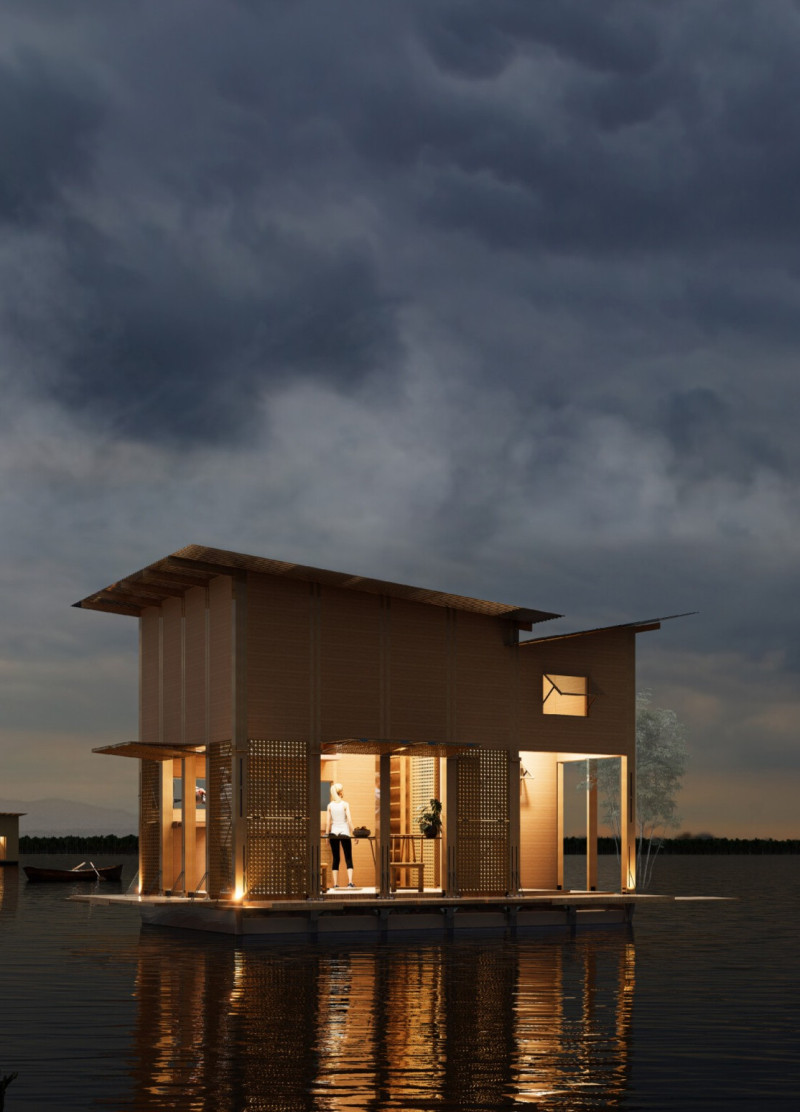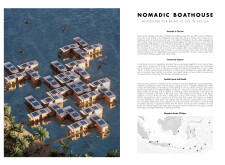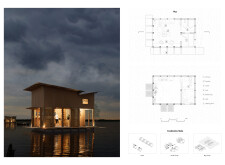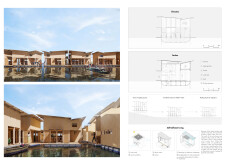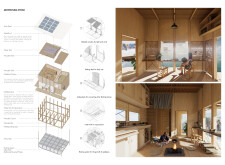5 key facts about this project
## Project Overview
The Nomadic Boathouse is designed for the Bajau people, an indigenous community in Southeast Asia known for their aquatic lifestyle. Located in the coastal regions of Malaysia and the Philippines, this project responds to the environmental and cultural needs of the Bajau, who rely on fishing for sustenance. The design seeks to improve their living conditions while maintaining their cultural identity through the application of contemporary architectural practices.
### Community-Centric Design
The layout of the Nomadic Boathouse emphasizes community living by creating interconnected spaces that facilitate social interaction. Each unit is designed to accommodate multiple families, reinforcing communal bonds that are essential to the Bajau way of life. Shared areas, such as kitchens and decks, are strategically placed to promote cooperative activities, wellness, and education, thus enhancing community systems within the design.
### Material Selection and Sustainability
The design utilizes a variety of sustainable materials tailored to withstand the challenges of a marine environment. Key materials include waterproof wood for structural components, corrosion-resistant metal roofing for rainwater collection, and reinforced recycled plastics for buoyancy in the floating system. Solar panels are integrated for renewable energy, while strategically placed windows improve natural ventilation and daylighting. Additionally, the use of bamboo not only connects with traditional construction techniques but also adds aesthetic and flexible qualities to the structure.
Adaptability is further reflected in the design's "L-shaped" floating deck, which can be adjusted based on user needs for daily activities such as fishing and cooking. This flexibility supports a range of functions while ensuring that the living environment is responsive to the community's lifestyle.


